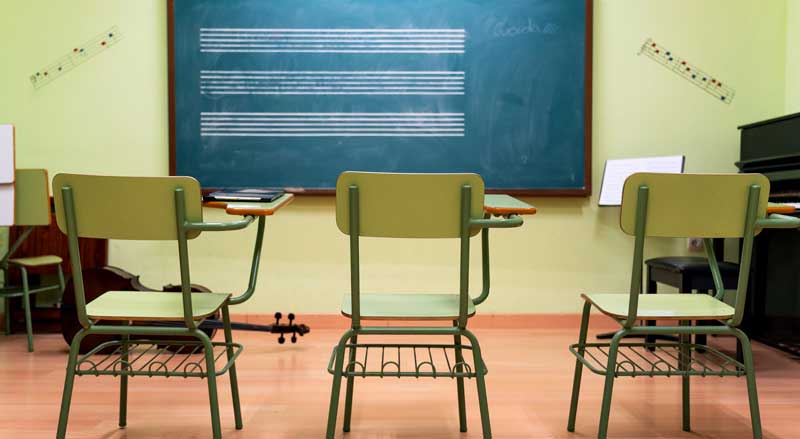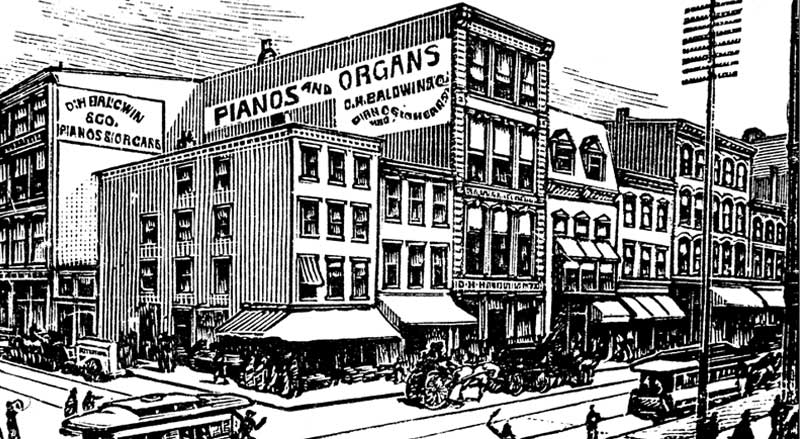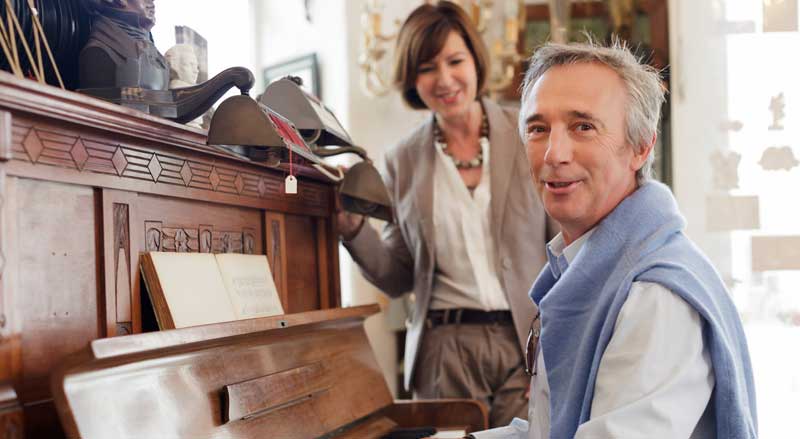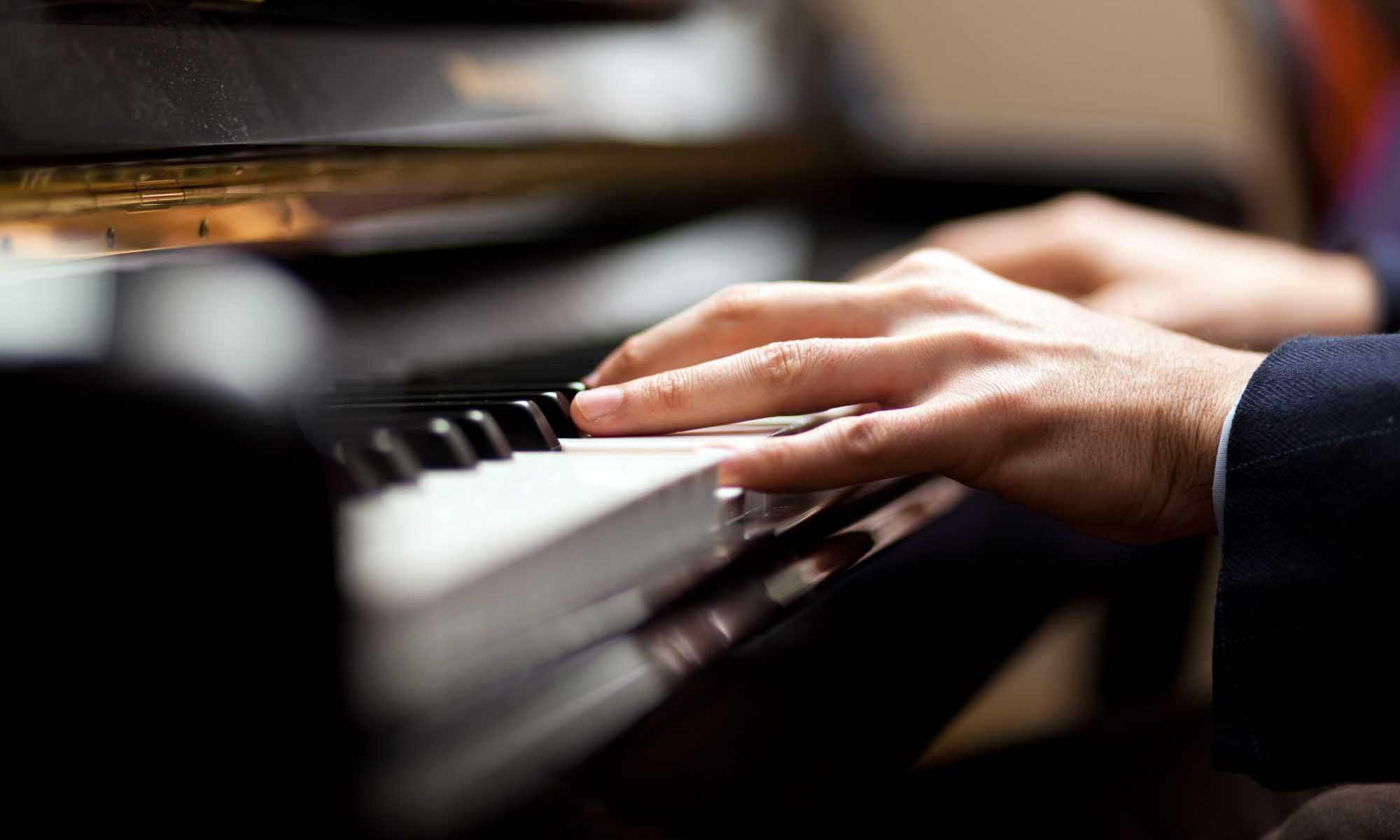
- bnaturalPianoAdmin
A piano can be a wonderful family instrument and learning resource in a home, but it also needs to be taken care of to continue in that role year after year. Pianos are built to last! In fact, the average “life-span” of a piano is over 50 years, but to last this long your new or used piano will require a minimum amount of care.
Pianos need regular maintenance and preventative care, just as we take care of our cars to avoid expensive repairs and keep it running right as long as possible. Many aspects of piano care and maintenance should be regularly provided by a Certified Piano Technician; such as piano tuning and regulation of the action. However, respecting the instrument and using some common sense can help you avoid mishaps or unnecessary problems.
Teach Young Children to be Respectful of the Piano
Let’s face it, one of our motivations as parents is to teach our children the joy and satisfaction of learning to play the piano. One suggestion is to introduce young children to the idea of treating the piano with respect. Practically speaking, this mean avoiding food or drinks on or near the piano. This is the easiest way to avoid spills and sticky messes that can damage the piano action.
Kids should never be allowed to put hard or heavy toys on the piano keys. Lots of kids’ toys and household objects can scratch and score the keys or get jammed in between or around the keys, and interfere with the piano keys and action. And, let’s make sure your little Picassos don’t use the piano as a canvas by drawing with markers, chalk or crayons.
There are over 1,000 moving parts in a piano and a great many of them are wood. So, let’s avoid placing the instrument in harm’s way Moisture can damage the wood and casing, and it can also create havoc with other structural and speaking components of the instrument, like the hammers, bridges, soundboard and strings.
How Often Should I Tune a Piano?
Your piano has 88 keys or “notes” and an average of 230 strings. The strings are in various graduated sizes and thicknesses, all strung very tightly. In fact, the average string has about 160 pounds of tension. Collectively, the strings are exerting tons of pressure on the structure of the piano. The strings are attached to tuning pins that are threaded into a pin-block. The pin block is made of multiple layers of very dense wood, usually maple. So, with this enormous pressure of the strings on the pin block, bridges and soundboard, and as the wood components are affected by atmospheric changes in temperature and humidity, everything shifts and moves ever so slightly. As this occurs the tension on the strings change. When the string become loosened or tightened by this constant, natural movement, the piano goes out of tune.
The general recommendation, whether you have a new piano or used piano, is to have the instrument -tuned by a technician twice a year. The best time to schedule your piano tuning is a few weeks “after the heat goes on or off”… in other words, after a significant change of the seasons, such as summer to winter or vice versa, when temperatures change by 20 or 30 degrees outside or more. If your home is in a locale where the overall temperature’s range barely varies, one might get away with a once-a-year tuning, but it’s certainly better to plan on two piano tunings per year if possible.
If a piano has not been tuned for a prolonged period of time, it may require two or more tunings to bring the piano “up to pitch”. An entirely neglected piano that has not been tuned for five years or more can sustain more serious damage, and should be carefully evaluated by an experience piano tuner/technician.
Cleaning the Piano
For wood finished pianos with a lacquer finish, you can typically use a high-quality furniture polish, but we recommend trying the polish on a small area first to see how the finish will react. Please use a clean, soft polishing cloth and rub in the direction of the wood grain. You should also remove any excess polish to avoid a waxy build-up on the finish.
Many Asian and European pianos have high gloss or satin polyester finishes. Polyester finishes are harder and more scratch-resistant than lacquer and are best maintained by simple dusting and cleaning with a soft cloth. If you need a little help removing fingerprints and smudges, you can moisten a very clean cloth with water and clean the finish with a consistent circular motion. You should avoid using paper towels to clean high polished finishes, as they can over time, dull the finish with tiny surface scratches.
For the occasional accident, where the piano keys get some kind of liquid or stain on them, use a gently damp cloth on the keys. Clean and dry the keys carefully by depressing each key to access the side of the neighboring keys. Prolonged moisture can swell the wooden keys, so you should endeavor to remove water or other liquids as quickly as possible by wiping the key surfaces and sides with an absorbent cloth or paper towels. We do not recommend use of harsh chemicals on the keyboard, but a light spray of Windex applied to your cleaning cloth can help to keep the keys smooth and clean.
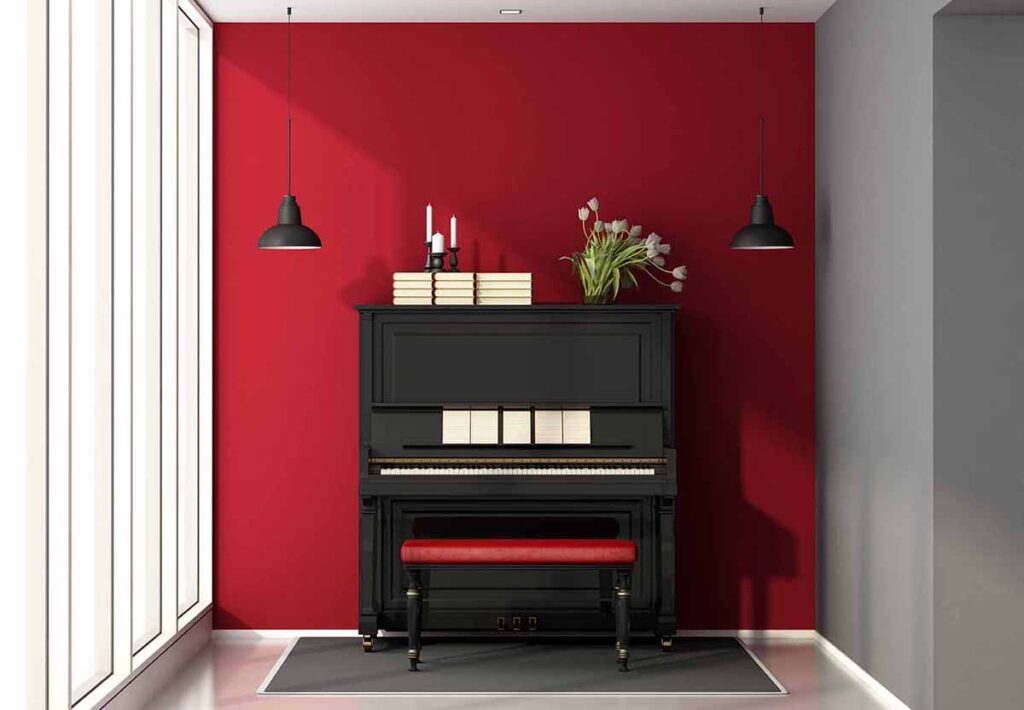
The Room Temperature and Environment
Pianos are largely constructed of wood. This means they are vulnerable to the humidity as well as the temperature, and this will affect the tuning stability. The acceptable humidity level in a room with a piano should be between 30 and 50 percent. In any event, pianos seem to fare best in consistent conditions. So, keeping your humidity and temperature even and consistent is one of the secrets to keeping the piano in tune longer.
More extreme atmospheric conditions can adversely affect the “speaking” and structural components of the piano. So, we do not recommend storing a piano in very cold or hot conditions. Very high levels of moisture in the air can cause the piano keys to stick as they swell and “bump into” on another. Conversely, very arid conditions can dry out the soundboard, bridges and other wood components and force them to crack or separate from one another. So, keep your temperature and humidity levels consistent in your home and most importantly in the immediate area of your piano. It’s also a good idea to keep the piano away from an exterior door or very drafty windows to avoid dramatic swings in temperature.
If you enjoy a fireplace or wood burning stove in your home, the piano should be distanced from those types of arid heat sources by at least 10 feet or preferably in another room. If you have hot air heat and/or use a woodburning stove or fireplace frequently, you may want to consider a humidifier near the piano. You can also ask your technician about a humidity control system that can actually be installed in the piano. These devices regulate the humidity in the piano; increasing tuning stability and ensuring the piano has adequate humidity so wood components don’t crack or separate. These devices can minimize the drying effect on piano action parts, the soundboard, bridges and pinblock that can be very expensive to repair, once damaged.
Moving Your Instrument
Most pianos have wheels…but they are really not designed for frequent moving.
If the instrument needs to be moved from one room to another or another location altogether, it should be professionally lifted and gently placed on a piano dolly. When moving the instrument, avoid placing it down hard or abruptly. Remember, the piano has 230 strings and is literally under tons of pressure, so any jarring of the instrument can cause it to go out of tune at the very least and can sometimes cause more serious damage.
If you are moving an upright piano, always take the pressure off the front legs, so they do not break. You can carefully move the piano, slowly while lifting the front of the instrument. Pianos are heavy. You can easily hurt yourself or damage the piano. It’s best to get a moving team with the right tools.
Your piano can last for an incredibly long time, and pass from one generation to another. However, preventative care needs to be applied regularly and methodically. Even a used or refurbished piano can last for decades and provide your family with enrichment and a great playing experience when taken care of properly.
At B Natural Pianos and Music School, we are experts in the proper care of pianos. Please contact us if you need a referral to a reputable piano tuner. If you have any questions about the care and maintenance of you piano, please give us a call.

